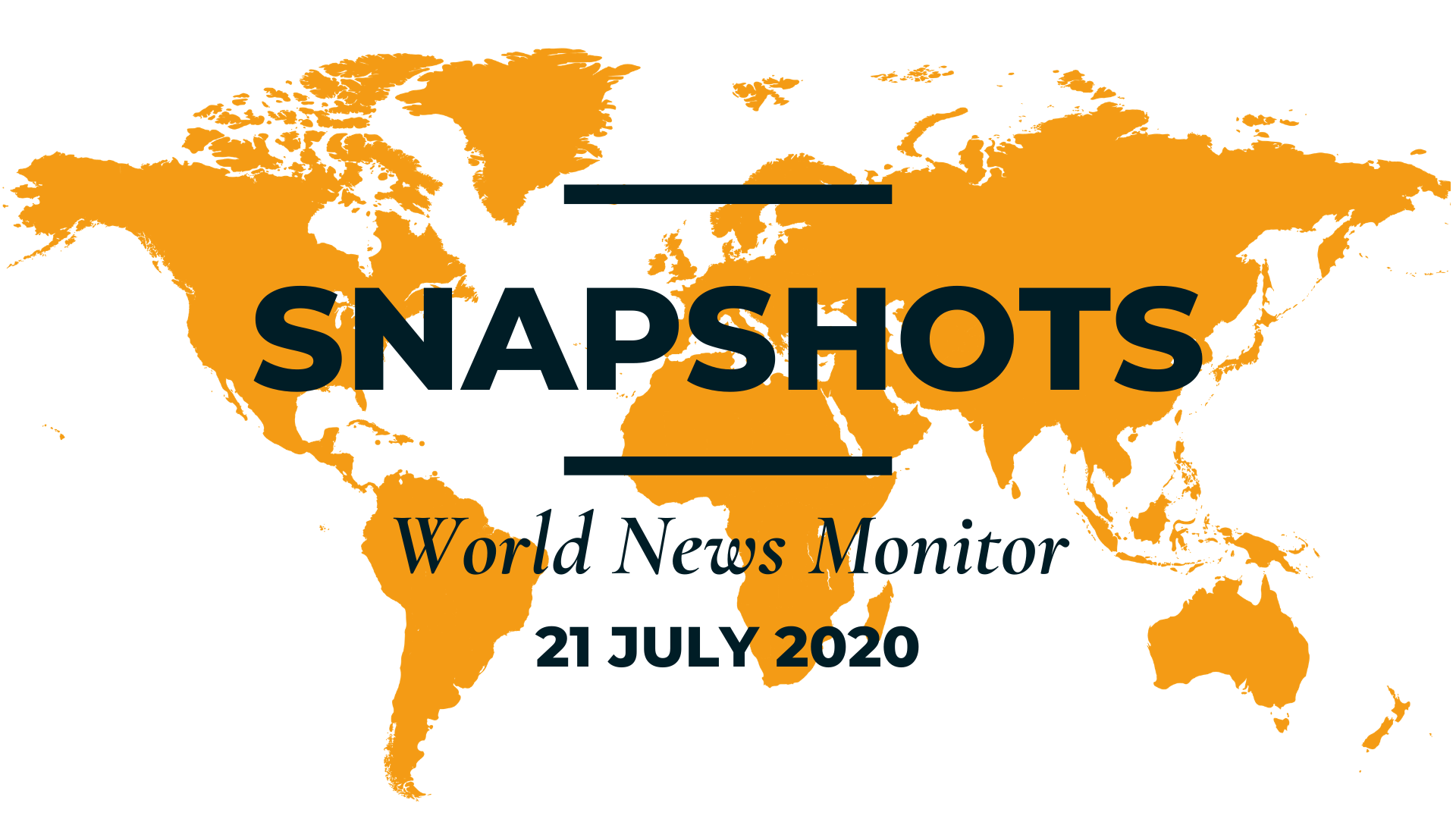South Asia
Floods in Nepal and India have led to the displacement of over four million local residents. Two hundred people have been declared dead, with several still missing. [DW]
Eight Afghan troops were killed, and several others were injured in a suicide bombing in Central Afghanistan. The Taliban has claimed responsibility for the attack. [Reuters]
East and Southeast Asia
South Korea successfully launched its first military satellite—Anasis-II—into space on Monday, becoming the 10th country in the world to operate a wholly independent military communication satellite. In October, the Korean military will take over the satellite operation after ensuring that it reaches its projected orbit and manufacturer Airbus Space and Defense tests its functional operability, [The Korea Herald]
Global banks like Credit Suisse, HSBC, Julius Baer, and UBS, among others, are reportedly looking into whether their Hong Kong clients’ have ties to the city’s pro-democracy movement, to avoid risking violating the new national security law. The broadened scrutiny of clients also applies to Hong Kong and Chinese officials who have implemented the law in anticipation of any US sanctions against them. [Channel News Asia]
Europe
After struggling to reconcile their differences over five days at a summit called to finalize the European Union’s post-COVID-19 recovery fund, the leaders of the 27-nation bloc finally agreed to a 750 billion euro fund. [Indian Express]
On Monday, Dominic Raab, the Foreign Secretary for the United Kingdom, announced the suspension of its extradition treaty with Hong Kong over China’s decision to impose the National Security Legislation. In response, China said that the decision amounted to an unwarranted interference in its internal matters, and warned that it would “fight back”. [Al Jazeera]
Latin America and the Caribbean
Despite contracting the coronavirus himself, Brazilian President Jair Bolsonaro continues to insist that coronavirus lockdown restrictions have “killed” and “suffocated” the economy. Brazil has over 2.1 million cases and more than 80,000 deaths from COVID-19. [Merco Press]
Taking note of the failures of past leaders in taking an aggressive approach to tackling drug gangs and cartels, Mexican President Andrés Manuel López Obrador said, “Violence cannot be confronted with violence, fire cannot be extinguished with fire, evil cannot be confronted with evil. Evil must be confronted with good. He said he would not “declare war” on cartels with the use of the military. [Al Jazeera]
Middle East and North Africa (MENA)
The United Arab Emirates launched the Arab world's first expedition to Mars in a step towards developing its technological and scientific capabilities, as well as reduce its economy’s dependence on oil. The Hope Probe took off from Tanegashima Space Center, Japan, early on Monday morning and is off on a seven-month voyage, where it is slated to eventually orbit the red planet and send back atmospheric data. [Reuters]
The Egyptian Parliament has approved the deployment of its troops to neighboring war-torn Libya. President Abdel Fattah el-Sisi had previously warned Turkey and the UN-backed Government of National Accord with military action, as they are moving their fighters and vehicles closer to the city of Sirte, which is Egypt's gateway to Libyan oil terminals controlled by renegade general Khalifa Haftar. [TRT World]
North America
The US Commerce Department on Monday added 11 Chinese companies to its economic blacklist over their connections to China’s treatment of Uighurs and other Muslim minority groups in Xinjiang. Blacklisted firms cannot buy components from U.S. companies without U.S. government approval. [Reuters]
The Trump administration has extended its sanctions on Ramzan Kadyrov, the ruler of Chechnya, Russia's southern region. Secretary of State Mike Pompeo said that Washington believes that Kadyrov is using the ongoing pandemic as an excuse to abuse human rights in the Chechen Republic. [DW]
Oceania
The Australian government’s JobSeeker and JobKeeper Programs have been reduced, but the programs themselves have been extended until 2021 to limit the economic damage by the coronavirus pandemic. Based on how the businesses recover over the next few months, the government plans to ease its citizens off of the JobKeeper wage subsidization benefits, with 2.1 million Australians expected to be removed from the JobKeeper register by the end of the year. At the same time, it expects that 345,000 citizens will transition from the JobKeeper to the JobSeeker program, which offers unemployment benefits. [ABC News]
Sub-Saharan Africa
Zimbabwe’s opposition and civil society groups are staging a mass protest to demand the release of more than 100,000 citizens who have been arrested for supposedly flouting coronavirus lockdown restrictions. They claim that the government is using the pandemic as a pretext to silence political dissent. [Africa Feeds]

